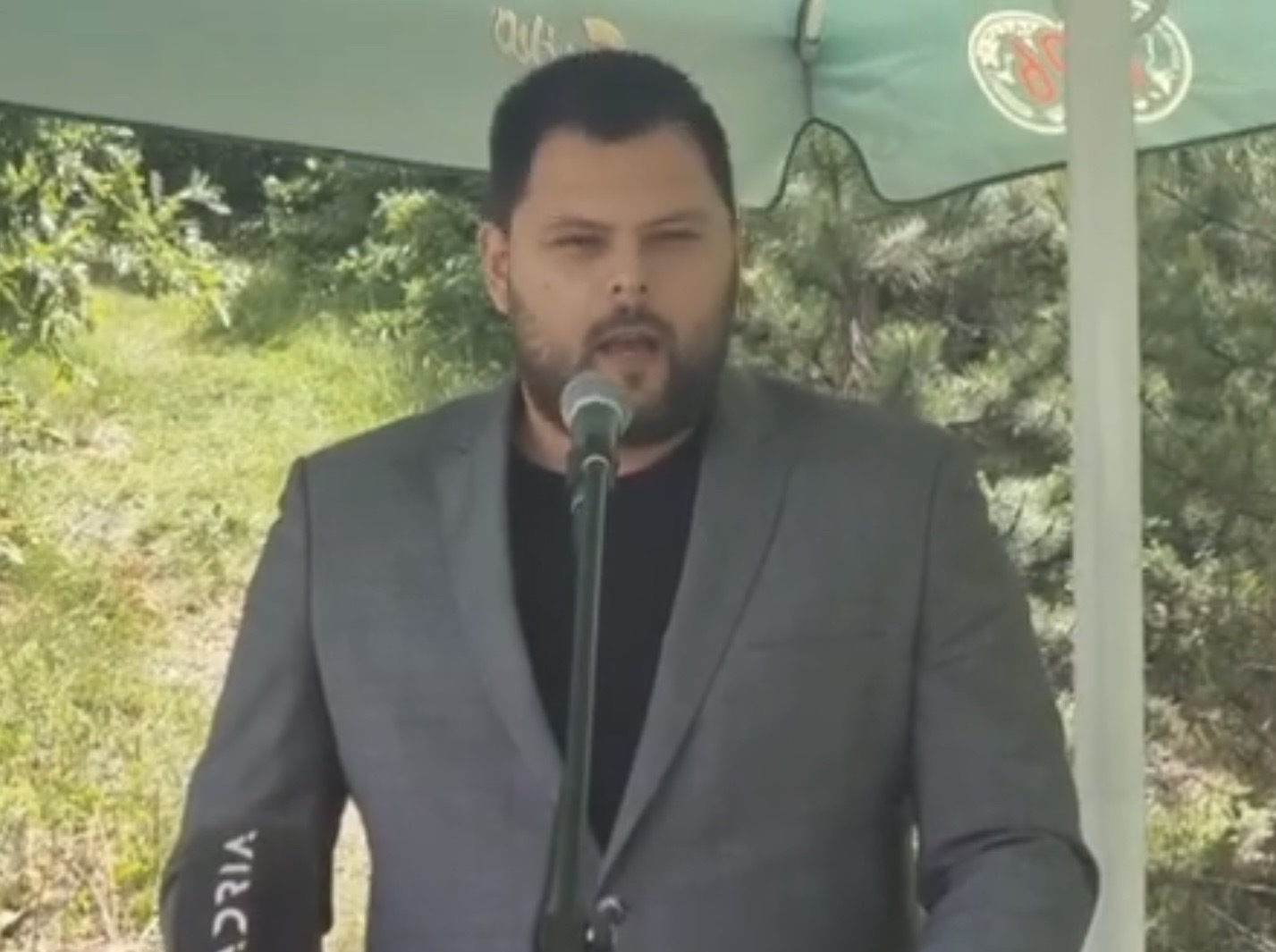
INTERNATIONAL DAY FOR COUNTERING HATE SPEECH – STOP WAR PROPAGANDA
18/06/2024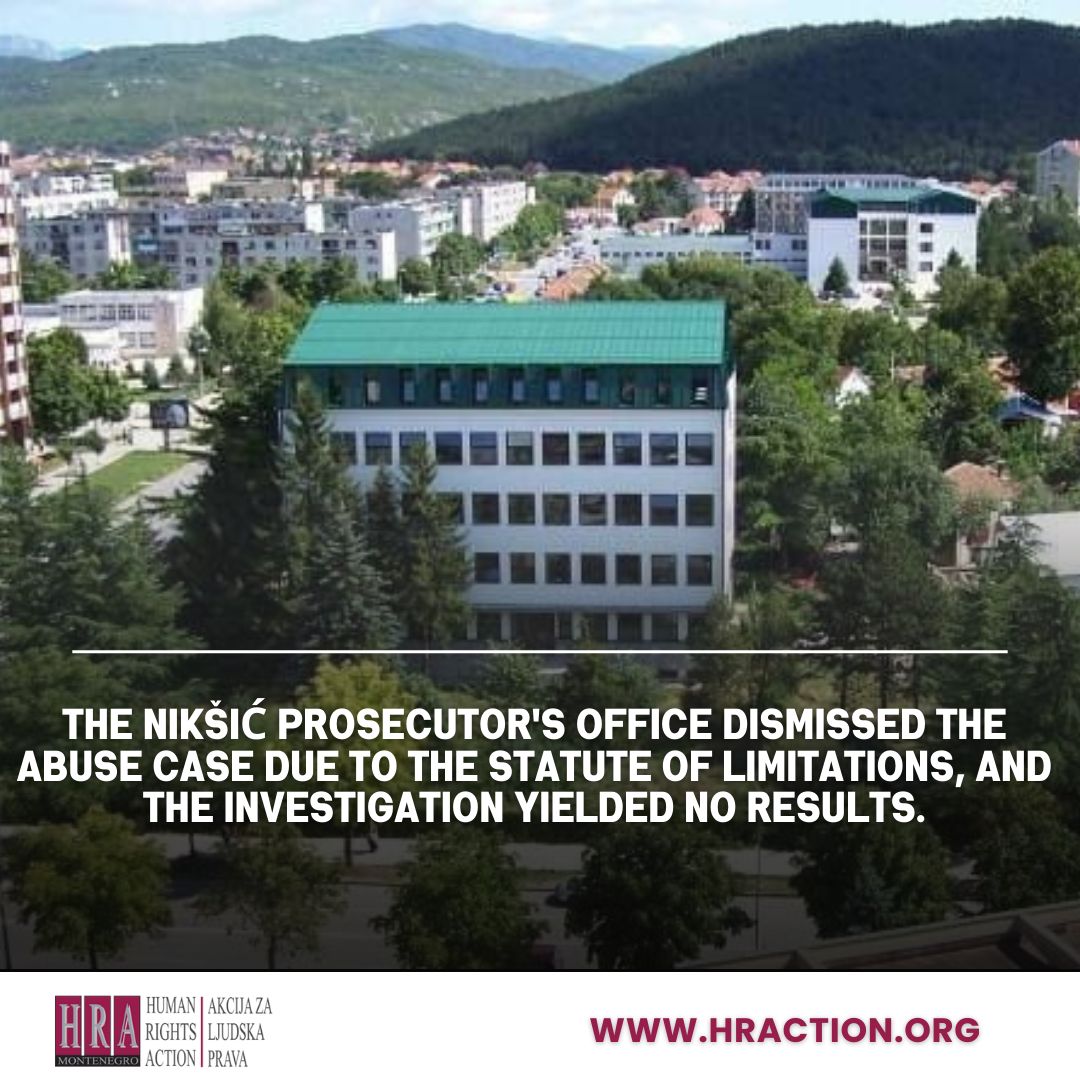
THE PROSECUTOR’S OFFICE IN NIKŠIĆ: ABUSE REPORT OUTDATED
21/06/2024ANNOUNCEMENT OF THE PRESS CONFERENCE ON THE OCCASION OF THE PREMIERE PERFORMANCE OF THE PLAY “DEATH IN DUBROVNIK”
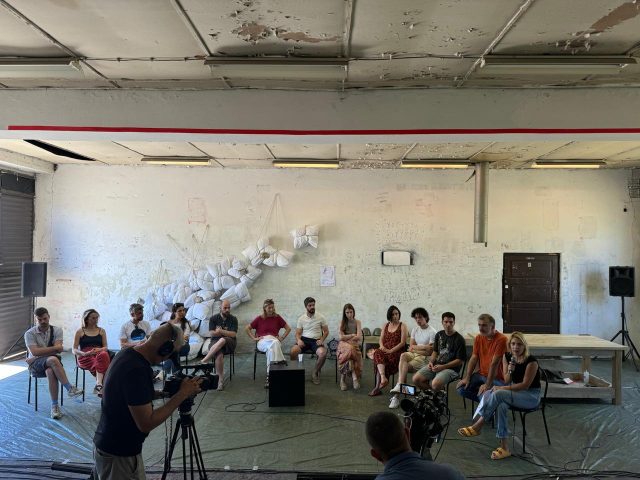
The press conference was held on June 18 at the military hangar in Zagorič in Podgorica on the occasion of the premiere of the theatric play “Death in Dubrovnik.” The play was produced by “Prazan Prostor” in collaboration with the Human Rights Action and is part of the project “The siege of Dubrovnik 1991 – 1992: Remembrance v. Reoccurrence” supported by the European Union through the regional project “EU Support for Building Trust in the Western Balkans” and implemented by the United Nations Development Program (UNDP).
This play is based on personal and archival materials.
The premiere of the play is on June 20 at 8:00 PM in the former Military Hangar in Zagorič. The play will be repeated on June 21 and 23 at 8:00 PM at the same location.
Speakers at the conference were: Marija Backović, Executive Director of the NGO “Prazan Prostor”; Tea Gorjanc Prelević, Executive Director of the NGO Human Rights Action; Petar Pejaković, the play’s director; Anja Pletikosa, the dramaturg; and actors Slaviša Grubiša, Emir Ćatović, Pavle Prelević, Miloš Kašćelan, Kristijan Blečić and Maša Božović. The creative team also includes Ilija Gajević as the music composer, Lina Leković as the costume designer, Vana Prelević as the set designer, and Anđelija Rondović as the project collaborator.
“The development process lasted three years. During this journey, we met Tea Gorjanc Prelević, the executive director of HRA, who recognized the importance of the topic and the play. In fact, HRA is one of the few organizations in Montenegro that continuously reminds us of the themes we try to leave behind and sweep under the rug. The dramaturg of the play, Anja Pletikosa, is our colleague and guest from Croatia. We believed it was very important that the person shaping the story we would share with everyone, must have different emotional inputs and memories. The decision to have a younger actor’s role is not accidental, as young people were the ones manipulated during those years. Regardless of our stance on that war, these people went to the battlefield in the name of an idea or a state because someone called them or they thought it was necessary. They returned home, and those who sent them later claimed that the war did not exist and that they were not there. No one in this country has ever taken care of them. This was an important topic we addressed in this play. These people are nameless in Montenegro, but they have names, surnames, families, and all of them dealt with post-traumatic stress, which some still face today,” added Marija Backović, Executive Director of NVU “Prazan Prostor”, at the press conference.
“Quoting the misconceptions of ’91, the play also opposes today’s nationalist calls for new battles and the naming of streets after the conquerors of Dubrovnik, a war that should never have happened! This play calls for us to face the truth, to realize that we no longer have time for delusions and projected conflicts of corrupt policies. We must once and for all understand that obscure figures like Marko Kovačević are still endangering us today, calling for new battles, just as Slobodan Milošević did! We must be smarter and more resistant to war propaganda that turned a happy state into over 130,000 dead and millions displaced in the ’90s! This play is important for the future of Montenegro, it is important for life because it is against death. Let us face death in Dubrovnik so that it does not repeat, neither there nor anywhere else, that is the message,” said Tea Gorjanc Prelević, Executive Director of HRA.
The play’s director, Petar Pejaković, said that this play is very personal to him. “I come from a mixed marriage, between a Montenegrin and a Croatian, and that war was my intimate problem, then and always.” He added, “Since 1992, I have met people from Montenegro who were on that battlefield and listened to their stories. They were ashamed to talk about it, but I tried to encourage them. When I encouraged a few, others felt free to share their experiences. Their stories were terrible and distressing, and you will see that in the play. Those stories still deeply affect me. Their conversations are an integral part of the script and text of the play. I want to thank those people for talking to us and for letting everyone hear their stories. We have an obligation to those people who had the courage to speak about their experiences, to help them overcome shame and guilt, and to clear the issue of responsibility, both political and leadership.”
The dramaturg of the play, Anja Pletikosa, said, “I think we have achieved a wonderful balance between a documentary approach and the obligation to the people who decided to expose their stories. It is very important that as many people as possible in the region see this play.“
The leading roles are entrusted to young actors: Slaviša Grubiša, Emir Ćatović, Pavle Prelević, Miloš Kašćelan, Kristijan Blečić, and Maša Božović.
“For me, it was challenging to work on something you know nothing about, the material was from male versions of stories. It was difficult to connect with the women of that time, with their stories that no one heard. We are a young team, half of us were born after the war. Throughout the process, we asked what we have to do with this, what is our responsibility in all this, and what is our stance. We have a moment in the play where we say ‘youth died here‘ and that was significant to me because the youth of those young people, those old people who believed in a different country and different ideals, and the youth of all of us who carry the consequences of all this, died here. So that new and old youth do not die anymore,” added actress Maša Božović.
Actor Slaviša Grubiša said: “When you hear their stories firsthand, those words need to be conveyed to the audience. For the first time, perhaps since I’ve been in this profession, I didn’t know how. And it’s my job to know how.”
“I am a patriot and I love this country, but we also need to face the things this country has done. We talk about events 100, 200, 300 years ago, but we don’t mention what happened 30 years ago. This process came to me like a history lesson that I needed to know what happened in 1991. First of all, I would like to invite my generation to see this play because young guys were manipulated back then and went to the battlefield. My generation needs to come and hear that story, what media incitement is, and what the military leadership was doing in 1991,” added actor Kristijan Blečić.
Actor Miloš Kašćelan stated: I thought this was fiction, that it was some novel, but when those people tell you their story, you realize it really happened. And then you realize that in Kotor, my Kotor, there is silence about it, and the people around me survived it, experienced it, lived it, and probably suffered various types of trauma, and I know nothing about it.
“I think the role of every artist is, if they don’t succeed, at least to try to depict the time they lived in and to bring to light some truth, something that is either kept quiet about or something that deeply shakes the society or community they are integrated into. And in that way, what happens locally, we connect with something universal. I think we succeeded in that here,” added actor Emir Ćatović.
The Executive Director of NVU “Prazan Prostor” thanked the present media, especially Pobjeda and RTCG, for attending, as these are the media that led the war propaganda in the ’90s.
- Foto: Krsto Vulović
- Foto: Krsto Vulović
- Foto: Krsto Vulović
- Foto: Krsto Vulović











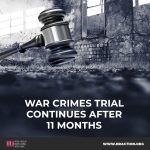

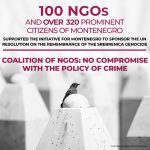
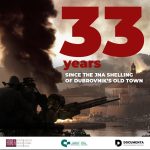
 English
English